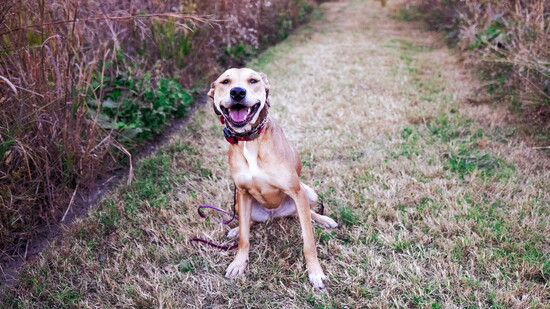Helping dogs understand the "why" and "how" to boundaries and commands is key to well-rounded, confident and comfortable pets. Oftentimes, that takes patience, training and consistency.
Beverly "Bev" Patterson and Lexi Butler-Boyle share a love for dogs. The two also share a Creve Coeur-based business, Cordial Canine, that specializes in personalized training programs, compassionate care and a safe environment for canines of all breeds and ages.
"Our mission is to enhance the bond between dogs and their owners through effective training techniques and exceptional day care services," explains Lexi.
Bev adds: "Our training programs are customized to meet the needs of each dog and their owner, including basic obedience, behavioral modification and specialized training, such as therapy dog certification."
Their services span on-site private lessons, daily training sessions as well as weekly human lessons with family members or continued education for pups that completed their initial training package. A complementary evaluation with one of their trainers is required before entering one of their programs to explore and establish initial trust and collaboration for all involved.
"People forget how easy it is to take our eyes off dogs, particularly with new dogs in new situations and trying to establish a new set of rules," reminds Bev. "With social media pretty pics, we so often see the finished product, the perfectly posed dogs. It's easy to think dogs are preprogrammed to behave certain ways, and people don't see the full picture of work involved."
She adds that currently, during post-pandemic mindsets, people are super eager to take their dogs out to include them in public settings. "However, crowds and unfamiliar settings can be overstimulating for dogs, and become uncomfortable for them. It's not fair to them, especially knowing that not every dog is a social butterfly."
Lexi says one of the most frequent reasons that clients seek their services is due to dogs jumping on people or play-biting too hard or frequently. "When we greet our pups, we're excited and they respond to us. But dogs don't understand when they've taken that activity too far. So, it's giving them mixed messages when they can do it in one setting or circumstance, but not others."
She says dog owners understand how to navigate "socially gray" areas, but dogs do not without guidance.
Sometimes, people think puppies don't really need firm training when they are so young, but repeated, unwanted activities can turn into unwanted adult behaviors.
Getting dogs to not pull on leashes during walks is a second area for which clients request help, says Bev. "It's about balance, positive rewards and achieving small wins."
These trainers help clients move through various ages and typical phases of canines being dog-tolerant or dog-selective, with the idea of teaching dogs how to alleviate the pressure they may feel in what they read as unpredictable situations. This training typically counteracts dog reactivity or aggression issues.
Bev and Lexi say they assist clients with helping their dogs to truly understand end goals and how to get there successfully. "Otherwise, it's like expecting someone to handle calculus without them knowing how to add or multiply. When we show our dogs the rules in consistent ways, we're actually giving them the gift of more affection and more freedom," reminds Bev.
557.229.1998
557.229.1999
TheCordialCanine.com
"Our personalized approach to training focuses on building strong bonds between dogs and their owners."
